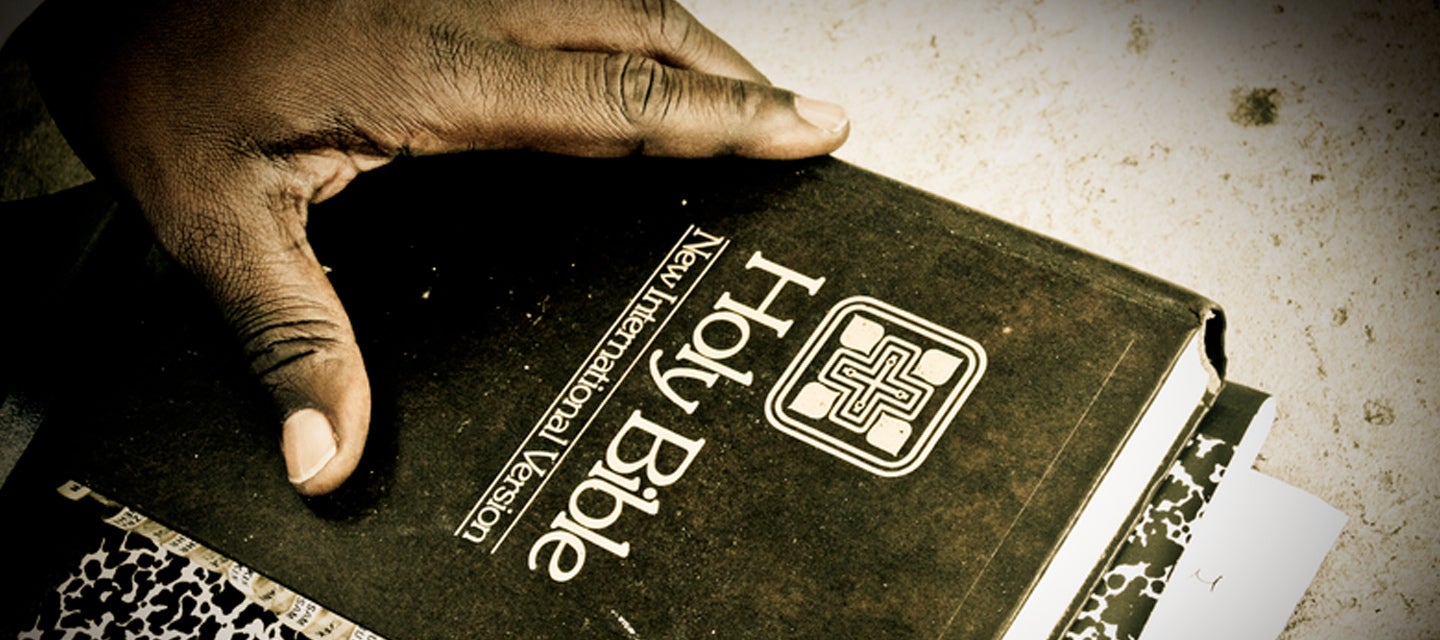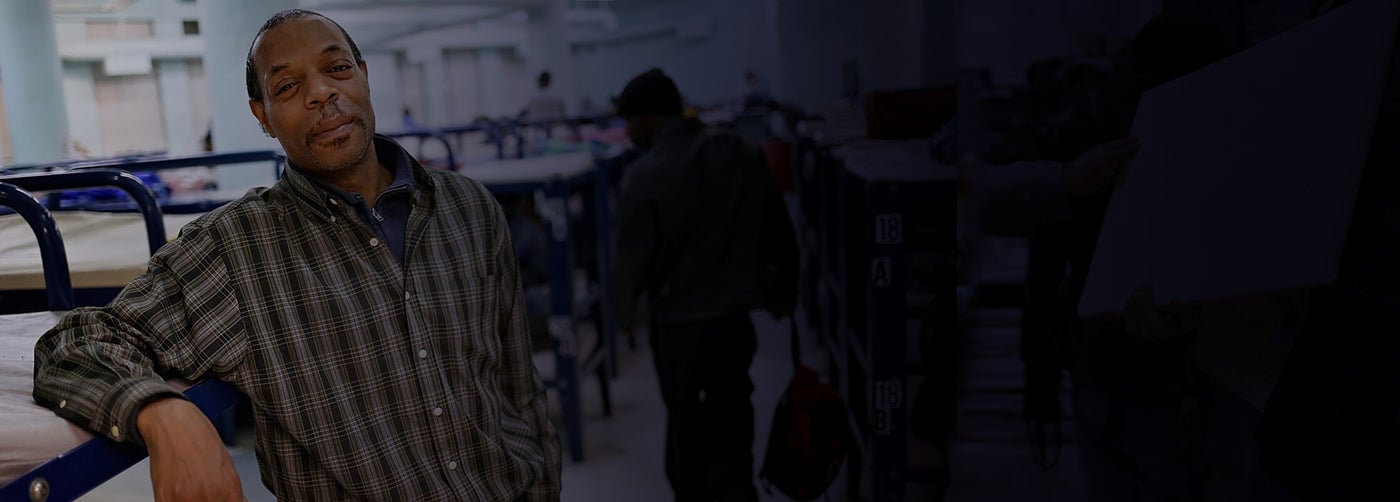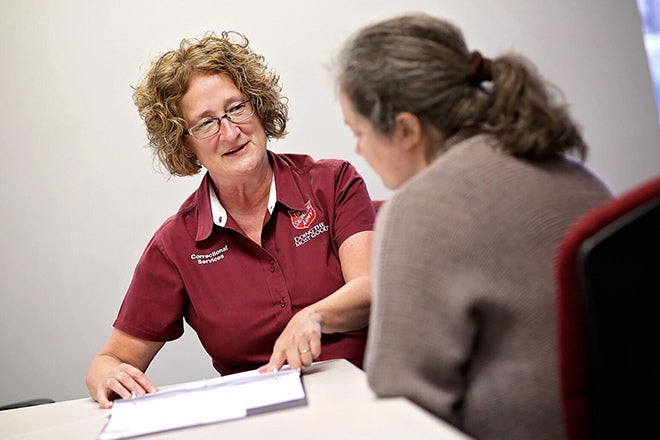
Correctional Services
How We Serve
Prison Ministry Provides Hope and Spiritual Comfort to Those Serving Time
Depending on the correctional facility, The Salvation Army's prison ministry offers a variety of resources to people encountering the criminal justice system. Bible Correspondence Courses is one of those resources, which provides students with knowledge of the Bible and insight into their life's purpose and meaning.
These courses are divided into four types and are available in Spanish and English versions:
- The Reflective Course series is designed to help people in their relationship with God through an interactive journaling format (5 sections)
- The Introductory Course series helps people to understand the gospel in context through preamble Bible study and personal reflection (4 sections)
- Basic Course, theme-based courses establishing different periods of Christianity (6 sections, totaling 78 lessons)
- Advanced Course, includes brief studies based on important theological themes (5 sections, totaling 46 lessions)
Our correctional services extend beyond Bible study for people who are incarcerated.
Our prison ministry programs include parenting classes, decision-making courses, music theory, Celebrate Recovery meetings, and the annual Salvation Army Toy Lift during the holidays are available at a number of corrections facilities across the country.
One especially transformative program is our Creative Arts in Prison initiative. Watch this powerful video to see how life-changing this program can be for real people serving time.
Our Work Is Not Done Once the Sentence Is Complete
Our Pathway Forward reentry program is available at several locations across the country. The program is dedicated to helping curb recidivism by treating its causes holistically. Pathway Forward provides transitional housing and services for formerly incarcerated people referred by the Federal Bureau of Prisons under contract with the U.S. Department of Justice. But it's more than just room and board.
Residents in the Pathway Forward reentry program develop coping life-skills strategies, reconnect with family members, find assistance to secure jobs, receive help to obtain housing, and access other community resources.
The following services are included in the Pathway Forward program:
- Resident Advisor/Counselor Support — Each client works with a resident advisor to develop a program to address needs and goals and a pathway to success.
- Counseling & Guidance — Professional counselors work with residents to resolve problems and assist in family reconciliation. Family counseling and spiritual development are also available.
- Substance Use Disorder & Mental Health Support — Some residents participate in substance use disorder education and treatment conducted by certified therapists. Others receive help addressing mental health concerns. Assessments and individual and group counseling are provided as part of this program.
- Restorative Justice & Life Skills — Clients participate in programming that combines personal life skills training and specially planned efforts to reconcile with family and the community. Services support personal adjustment, family reunification, meaningful employment, and increased financial stability.
- Academic & Employment Skills — The Salvation Army provides educational opportunities for residents, including computer skills, GED classes, English as a Second Language classes, and access to local colleges, universities, and trade skills.
- Employment Readiness Training — All clients are expected to be employed or seeking employment within 21 days of arrival unless enrolled in a training program. The Salvation Army provides assistance in resume preparation and job searches. Residents also attend workshops focusing on time management, interviewing skills, applying for employment, appropriate attire, job retention, and more.
Stats
354,511
individuals visited in institutions last year
40,209
individuals received correctional services last year

Donate to help members of your community find hope during and after incarceration.
Other Services

